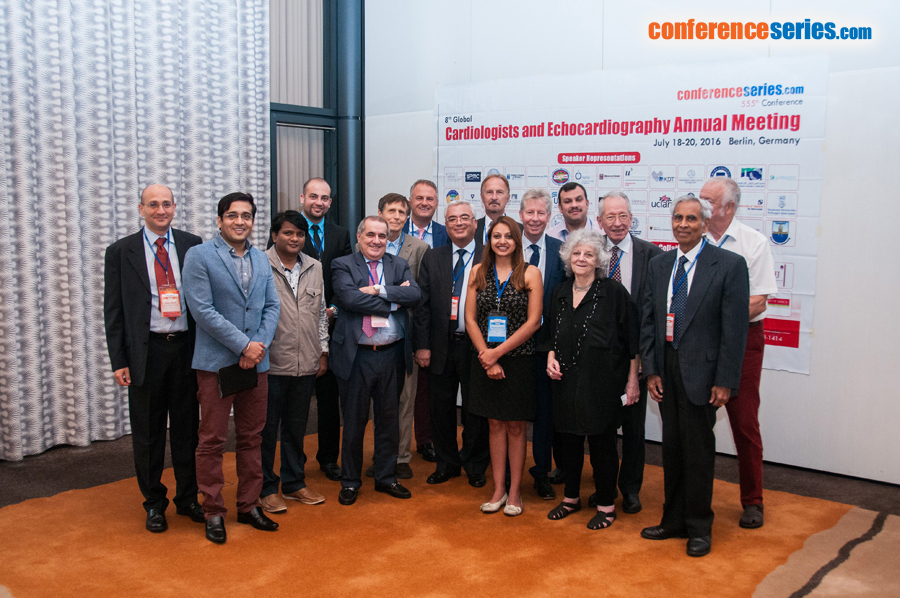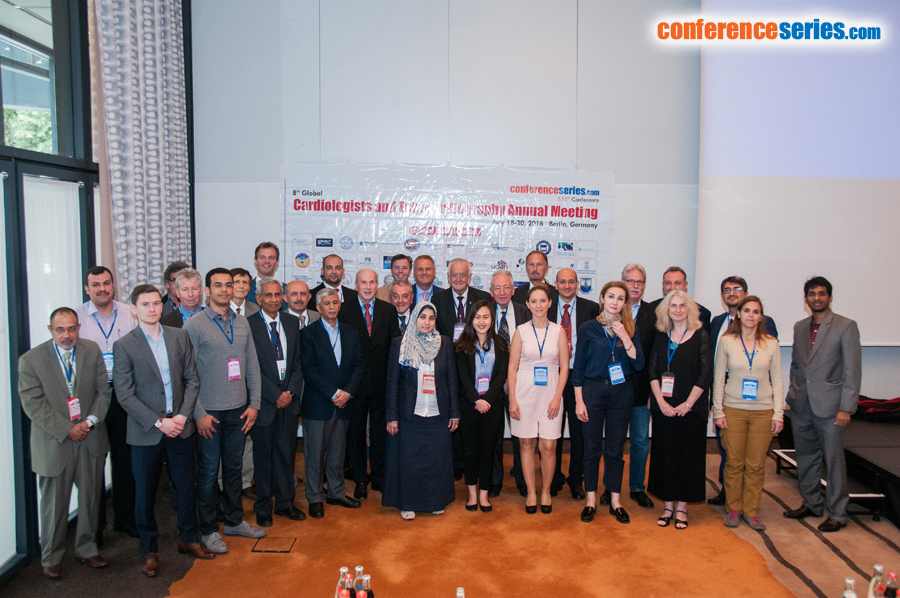
Maria Nathania
Newcastle University, UK
Title: The role of cardiac high energy phosphate metabolism in cardiac function and performance: The impact of age
Biography
Biography: Maria Nathania
Abstract
Background: Cardiac dysfunction and diminished performance are major characteristics of heart failure. Diminished cardiac energy phosphate metabolism (i.e. PCr/ATP) has been suggested to cause cardiac dysfunction and chronic heart failure. The aim of this study was to define the relationship between cardiac high-energy phosphate metabolism and cardiac performance. Methods: Thirty-six healthy women (younger, ≤50 years, n=20; and older ≥60 years, n=15) underwent cardiac MRI with 31P spectroscopy to assess cardiac high-energy phosphate metabolism (i.e. PCr/ATP ratio), and performed cardiopulmonary exercise testing with non-invasive central hemodynamic assessment. Cardiac power output (CPO), as a measure of cardiac performance, was calculated as the product of cardiac output and mean arterial blood pressure. Results: PCr/ATP ratio was significantly lower in older compared to younger age women (1.92±0.48 vs. 2.29±0.55, p<0.05), as were peak exercise CPO (3.35±0.73 vs. 4.14±0.81 watts, p<0.01), diastolic function (i.e. E/A ratio, (1.33±0.54 vs. 3.07±1.84, p<0.01), and peak exercise oxygen consumption (1382.9±255.0 vs. 1940.3±434.4 ml/min, p<0.01). Further analysis revealed that PCr/ATP ratio shows significant positive relationship with E/A ratio (r=0.42, P<0.05), peak CPO (r=0.40, p<0.05), and peak oxygen consumption (r=0.50, p<0.01). Subgroup analysis based on age however showed that PCr/ATP ratio was significantly related to peak CPO in younger but not in older women (r=0.44, p=0.05 vs. r=0.14, p>0.05). Conclusions: High-energy phosphate metabolism and performance of the heart decline with age. Our findings demonstrate that cardiac high-energy phosphate metabolism plays an important role in overall cardiac function and performance in younger but not older age.
Speaker Presentations
Speaker PPTs Click Here



